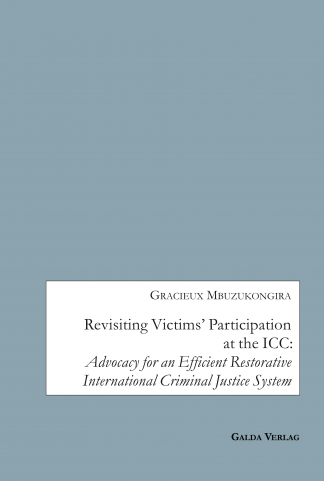Description
This research submits that for the purposes of making victims’ participation to the ICC proceedings more efficient, the victims’ status could be raised to a status similar to that of partie civile common in civil law jurisdictions. However such status should be limited to victims who are ready to take the solemn oath and who accept to be cross-examined and who understand that should they give false evidence to the Court, they would become subject to criminal proceedings for attempt to subvert the Court’s administration of justice. Furthermore the Chamber should have the discretion to grant such status to any victim it deems fit according to the relevance of submissions they intend to make. It further submits that whereas criminal proceedings should remain the focus of their primary mission which is estab- lishing guilt, the reparation mechanism should be victim centered. Indeed one may be tempted to advocate for a reparation system which is less judicial even when such mechanism might remain within the ICC auspices; the me- chanism should rather be more restorative, thus leaning more towards mechanisms available under transitional justice.


